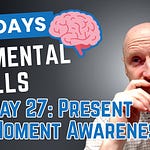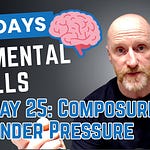Self-Determination Theory assumes that human beings are active organisms with evolved tendencies toward growth, mastery, and integration of new experiences into a coherent sense of self. These natural tendencies toward growth and development are automatic, however. The social context is an essential factor, and it can either support or thwart our development. And so, there exists a dialectic relationship between the organism and its social context. This is the basis for SDT’s predictions about human behaviour, experience, and development. It is formed aroun d three basic assumptions;
Autonomy: The human need to self-regulate our experiences and actions
Competence: Our basic need to feel effective and masterful in a given discipline
Relatedness: Our feelings of social connection and meaningful relationships
SDT speaks of psychological “nutriments” for healthy human development and functioning, and we realise these through the fulfilment of basic psychological needs for Autonomy, Competence, and Relatedness. To the extent that these psychological needs are satisfied on an ongoing basis, people develop and function along healthy lines. However, if these psychological needs are thwarted, people will more likely experience the absence of well-being and sub-optimal functioning.
The darker aspects of human behaviour, such as psychopathology, prejudice, and aggression, are understood as reactions to thwarting of basic psychological needs. In other words, where our basic psychological needs are not supported, we develop compensatory or defensive strategies. We literally have to fight for psychological survival. In overly controlling, rejecting, critical, and negative situations, we are more likely to become self-protecting, self-focused, defensive, aggressive, and antisocial.
Ryan and Deci's theory of self-determination refers to these basic psychological needs as proximal satisfactions and says that they are, in the most profound sense, the essence of human thriving. The research suggests that in all social contexts, be that work or play, where there is support for our satisfactions, we express our curiosity, creativity, productivity, and compassion for others to the highest levels.
Mental Skills Basics Course
Suffering stress and anxiety is not a prerequisite for success in self-employment–there's a better way. Mental skills provide you with the means of coping effectively with difficulty and achieving your goals. I created the Mental Skills Basics Course to introduce business leaders, self-employed individuals, freelancers, consultants, and small business owners to the psychological and emotional skills associated with success.










